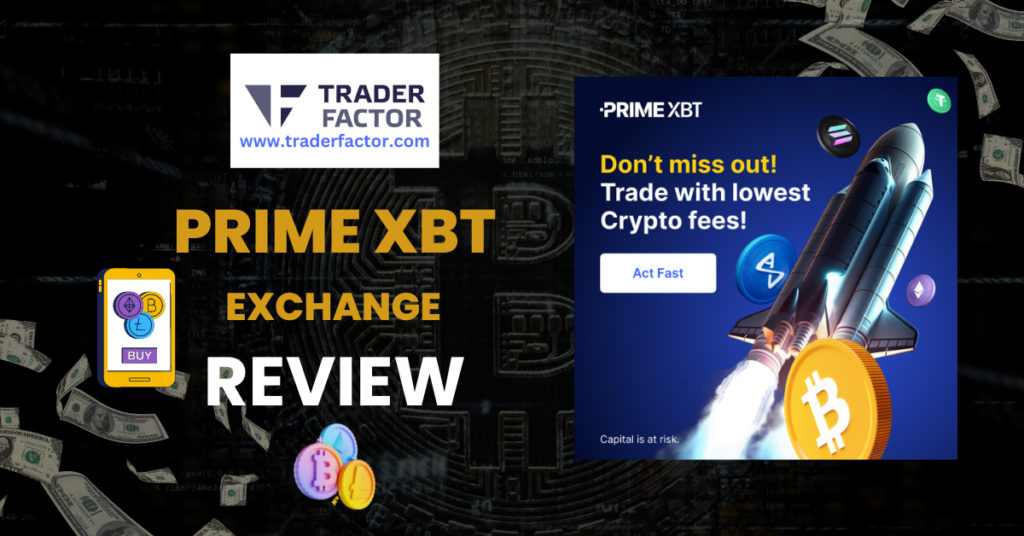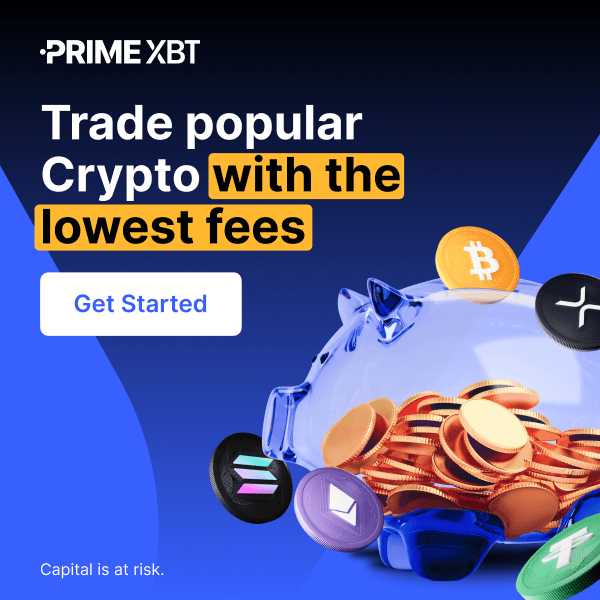In 2024, you’ll find that the top P2P crypto exchanges like PrimeXBT, LocalBitcoins, Paxful, and Bisq lead due to their robust security measures, including escrow systems and authentication processes. They offer diverse payment methods, from bank transfers to online wallets, enhancing accessibility while managing regulatory and security challenges efficiently. These platforms support a wide range of crypto-to-crypto and crypto-to-fiat pairs, ensuring high market liquidity which facilitates quicker and more competitive trading opportunities. User interfaces are optimized for ease, making trading intuitive. Exploring these exchanges further could greatly enhance your understanding of P2P trading dynamics and opportunities.
Table of Contents
ToggleUnderstanding P2P Crypto Exchanges
P2P crypto exchanges empower you to trade cryptocurrencies directly with other users, bypassing traditional financial intermediaries. This direct trading framework introduces unique regulatory challenges as it falls outside typical financial oversight. You’re dealing with a less regulated space, where adherence to local laws is important yet often complicated by the global nature of transactions.
Market liquidity is another consideration. Unlike centralized exchanges that aggregate liquidity, P2P platforms depend on the availability of buyers and sellers, which can vary dramatically, affecting how quickly and at what price you can trade.
Payment methods on P2P exchanges are diverse, ranging from bank transfers and PayPal to gift cards and cash deposits. This variety supports accessibility but also introduces risks such as payment fraud. Verifying the reliability of payment methods offered on the platform is necessary.
Cryptocurrency selection can also vary widely between P2P platforms. While some offer a vast array of altcoins, others might be limited to major cryptocurrencies like Bitcoin and Ethereum. Your trading choices might be restricted based on what’s available on a specific platform.
Lastly, geographic restrictions can impact your ability to trade on certain P2p platforms. Some platforms may not operate in specific countries due to regulatory issues, limiting your global trading capabilities.

The Rise of Decentralized Trading
Decentralized trading platforms have surged in popularity, offering you enhanced control over your financial transactions without the need for traditional financial intermediaries. These platforms are redefining market dynamics by facilitating direct peer-to-peer exchanges, which increase market liquidity and allow for more transparent pricing models. However, this shift also introduces regulatory challenges as governments and financial authorities grapple with how to appropriately oversee these decentralized entities while ensuring consumer protection and preventing financial crimes.
To cater to diverse global users, decentralized platforms support a wide array of payment methods, enhancing accessibility and convenience. Whether you’re using bank transfers, digital wallets, or even gift cards, the flexibility in payment options broadens participation across different geographies.
A key attraction of decentralized trading is user anonymity. You can engage in transactions without disclosing sensitive personal information, appealing particularly to those concerned about privacy. This anonymity, though, poses its own set of regulatory hurdles that need careful navigation to prevent illicit activities.
Key Features of P2P Platforms
You often find that the core appeal of peer-to-peer (P2P) crypto platforms lies in their provision of direct, user-to-user interactions, which greatly streamlines the trading process. Delving deeper, a key feature you’ll appreciate is the diversity of payment methods available. This flexibility allows you to trade using options that range from bank transfers to mobile payments, catering to global users with varying preferences and accessibility.
Market liquidity analysis is important too. P2P platforms facilitate a dynamic marketplace where the liquidity varies notably across different cryptocurrencies and payment methods. Understanding this can help you gauge the ease of executing trades at competitive prices.
Security protocol comparison is another crucial aspect. P2P platforms employ a range of security measures, from escrow systems to two-factor authentication, ensuring that both parties are protected throughout the transaction process. Comparing these can give you insights into which platform aligns best with your security expectations.
Furthermore, crypto asset selection is essential. Platforms vary widely in the cryptocurrencies they support, which directly impacts your trading capabilities. Lastly, user interface optimization plays a significant role; a well-designed interface enhances your trading experience by making navigation and operation intuitive and straightforward, which is particularly beneficial for newcomers to the crypto trading scene.

Evaluating P2P Against Traditional Exchanges
When evaluating peer-to-peer exchanges compared to traditional platforms, it is crucial to examine their distinct operational frameworks and the varying degrees of control they provide traders. P2P platforms offer a decentralized nature, allowing you direct interactions with buyers or sellers, which greatly influences market dynamics. This setup can lead to more competitive pricing and wider spreads depending on the currency pair and market demand.
You’ll find that trading volumes on P2P exchanges can be less predictable than traditional exchanges. This variability is partly due to the decentralized setup, which, while flexible, does not guarantee the liquidity available on traditional platforms where large volumes are consistently matched by centralized mechanisms.
Regulatory challenges also differ markedly. Traditional exchanges often face stricter regulations, which can provide a sense of security but also limit flexibility and privacy. P2P exchanges, by their nature, offer you more privacy but this can come with increased scrutiny from regulatory bodies attempting to prevent illicit activities.
Moreover, the range of payment options on P2P platforms is typically broader, accommodating various methods from bank transfers to online wallets, enhancing accessibility but also complicating compliance and security protocols. You’ll need to navigate these aspects carefully to optimize your trading strategy while managing potential risks.
Security Measures in P2P Trading
To guarantee secure transactions, P2P crypto trading platforms implement robust security measures such as escrow systems and two-factor authentication. These platforms prioritize your safety by incorporating advanced security protocols that guard against unauthorized access and potential fraud. Escrow services ensure that your cryptocurrency is securely held during the transaction process and is only released when payment conditions are met.
The inclusion of multiple payment options not only enhances trading flexibility but also contributes to market liquidity. This diversity allows you to choose a payment method that best suits your needs, thereby facilitating smoother and faster transactions. Moreover, the design of these platforms supports high transaction speed, which is important in the fast-paced world of cryptocurrency trading.
It’s essential to understand that these security measures are in place to protect both buyers and sellers. By using P2P platforms that prioritize these aspects, you’re not only safeguarding your digital assets but also ensuring that your trading experience is efficient and secure. Remember, the strength of a platform’s security infrastructure directly impacts the overall trust and efficiency of your trading activities.

Top Performing P2P Exchanges
Building on the foundation of robust security measures, let’s now explore the top performing P2P exchanges that lead the market in performance and reliability. You’ll find that these platforms not only address liquidity challenges effectively but also maximize user control and security enhancements, guaranteeing a trustworthy trading environment.
One significant P2P exchange benefit is the direct involvement you have over your transactions, which is a stark contrast to traditional exchanges. This user control plays a pivotal role in the global marketplace, where you can trade across borders without intermediaries. For instance, platforms like LocalBitcoins and Paxful thrive by facilitating a direct connection between buyers and sellers, supported by an escrow system that secures the transactions until payment confirmations are verified.
Moreover, these exchanges have adapted to the liquidity challenges inherent in P2P trading by introducing features like dynamic pricing and a broader range of payment options. This flexibility helps maintain a fluid market condition and ensures that you can buy or sell cryptocurrencies with minimal slippage.
PrimeXBT Exchange Review

PrimeXBT stands out among P2P crypto exchanges for its robust trading tools and high liquidity, offering you a competitive edge in the market. This platform provides a significant advantage for traders seeking efficiency and speed in their trading operations. The peer-to-peer benefits of PrimeXBT include an environment where you can engage in secure transactions with confidence, knowing that your trades are safeguarded by advanced security measures.
One of the key primexbt advantages is its commitment to payment diversity. You’ll find a wide array of payment options available, accommodating a global user base. Whether you prefer traditional banking methods or modern digital wallets, PrimeXBT caters to your preferences, ensuring that you can fund and withdraw from your account with ease.
Moreover, trading flexibility is a cornerstone of the PrimeXBT offering. The platform allows you to adapt your trading strategies with tools that support both long and short positions across a variety of assets. This flexibility, combined with strong liquidity, guarantees that you can execute large trades without significant price slippage, maximizing your potential returns while minimizing risks.
LocalBitcoins Exchange Insights
As you explore LocalBitcoins, it’s clear that this platform stands as a pioneer in the peer-to-peer crypto exchange landscape, offering a straightforward, user-driven trading experience. The LocalBitcoins user experience is focused on simplicity and direct interaction between buyers and sellers, which not only enhances user autonomy but also fosters a sense of community and trust.
One of the pivotal p2p trading benefits on LocalBitcoins is the use of an escrow service. This service provides significant security advantages by holding the cryptocurrency in question until payment confirmation is received, thereby mitigating risk and fraud. Additionally, the diversity in payment methods available on LocalBitcoins stands out. You’re offered a multitude of options ranging from bank transfers and PayPal to more localized payment methods, ensuring flexibility and accessibility to a broad user base.
Moreover, the growth of this decentralized marketplace is evident. LocalBitcoins has adapted to the demands of an expanding global market, integrating new features and services that cater to an evolving user profile. This ongoing development not only underscores the platform’s commitment to meeting user needs but also highlights the dynamic nature of the cryptocurrency trading environment.

Comprehensive Look at Paxful
While LocalBitcoins has carved a niche in the P2P market, Paxful emerges as another notable player, offering similar user-driven and secure trading experiences. You’ll find that Paxful excels in its variety of payment methods, boasting over 300 options, which is a broader spectrum compared to many competitors. This includes everything from bank transfers and gift cards to digital wallets, ensuring you can trade from almost anywhere.
Paxful’s security protocols are robust, incorporating two-factor authentication and a mandatory escrow system that holds the crypto assets until payment confirmations are verified. This greatly mitigates the risk of fraud. However, you might face liquidity challenges, especially with less common currencies or higher value transactions. The platform’s liquidity is not always as high as some larger exchanges, which could affect your ability to execute large trades quickly.
The user verification processes on Paxful are stringent, enhancing security but potentially slowing down the initial setup process. You’ll need to provide personal information to meet KYC requirements. Additionally, Paxful faces geographic restrictions, limiting users in certain countries from accessing all of its services, which could influence your trading capabilities depending on your location.
Binance P2P Trading Analysis

Binance P2P, launched in 2019, rapidly evolved into a major platform offering zero transaction fees and a secure escrow service, facilitating efficient and safe crypto trades globally. As you explore the platform, you’ll notice its extensive payment methods diversity, which caters to a global marketplace by supporting over 700 options, making it highly accessible.
However, liquidity challenges sometimes surface, especially with less common cryptocurrencies or during volatile market conditions. To address this, Binance P2P utilizes smart contracts automation, enhancing the reliability of trades by guaranteeing terms are met before transaction completion.
User security is paramount. The platform employs a robust escrow system alongside mandatory user verification processes to prevent fraud and ensure all parties are protected during transactions. Here’s a closer look at how Binance P2P stands out:
| Feature | Details | Impact |
|---|---|---|
| Payment Methods | Over 700 options | Enhances accessibility |
| Liquidity | High for popular coins, variable others | Can be challenging |
| Security | Escrow service, user verification | Safeguards user interests |
| Automation | Smart contracts for transaction fidelity | Guarantees reliable execution |
This detailed structure guarantees you’re engaged in a secure and efficient trading environment, ideal for both novice and experienced traders.
Exploring Bisq’s Decentralized Network
Exploring Bisq’s decentralized network reveals a robust platform that operates without a central authority, allowing you to trade directly with others securely and privately. This model offers significant decentralization benefits, including enhanced privacy and reduced risk of server downtime or interference from centralized bodies. However, it is crucial to understand the regulatory challenges in P2P environments. Bisq’s framework navigates these by not requiring user data for registration, thereby sidestepping some typical compliance requirements.
Bisq supports a wide array of payment methods, enhancing its appeal by accommodating diverse global user preferences. This payment method diversity contributes to global market accessibility, enabling individuals from different geographical locations to participate without the constraints of traditional banking systems.
Moreover, Bisq has implemented several risk management strategies to safeguard transactions. These include a security deposit system and an arbitration process to resolve disputes, which collectively enhance trust among participants. By leveraging these mechanisms, Bisq ensures that while it operates in a decentralized manner, the integrity and security of trades are upheld, making it a viable choice for users worldwide seeking a decentralized trading experience.

Profit Potentials in P2P Exchanges
Understanding the decentralized nature of platforms like Bisq highlights the potential for significant earnings in P2P crypto exchanges. The profit potential in these markets largely hinges on the dynamics of supply and demand. Since you’re engaging directly with buyers and sellers, you’ll find that prices can vary more widely than on traditional exchanges. This variance can open up opportunities for arbitrage and potentially higher returns, especially if you’re skilled at maneuvering market dynamics.
However, the breadth of payment methods available also plays a critical role. With more ways to pay, you can attract a wider audience, increasing your chances to buy low and sell high. Yet, you must be wary of the regulatory challenges that come with such diversity. Different regions have distinct regulations that can affect how, when, and what type of transactions you can perform, impacting your profitability.
Furthermore, your earnings can also be influenced by the selection of cryptocurrencies available on the exchange. A platform that offers a wide variety of coins provides more trading opportunities. It allows you to diversify your trades based on market trends, enhancing your potential to profit amidst the ever-changing landscape of the crypto market.
Asset Diversity and Trading Options
Considering the vast array of cryptocurrencies available, you’ll find that P2P platforms offer diverse trading options that cater to both novice and experienced traders. These platforms facilitate efficient asset management by providing a variety of trading pairs and liquidity options. Additionally, user safety is paramount, with secure transaction mechanisms and various payment methods enhancing the trading experience.
Here’s a breakdown of key features to take into account when evaluating P2P crypto exchanges:
| Feature | Description |
|---|---|
| Trading Pairs | Extensive list of crypto-to-crypto and crypto-to-fiat pairs. |
| Payment Methods | Supports bank transfers, online wallets, and other local options. |
| Liquidity Options | High liquidity ensures better price stability and quicker trades. |
| Asset Management | Tools for tracking and optimizing your cryptocurrency portfolio. |
| User Safety | Robust security protocols to protect users and their investments. |

User Experience on P2P Platforms
User experience on P2P platforms varies greatly, depending on interface design, transaction speed, and customer support quality. As you navigate through different P2P crypto exchanges, you’ll notice that your satisfaction largely hinges on several key aspects:
- Platform Usability: A well-designed interface that’s intuitive and easy to navigate enhances your trading efficiency and reduces frustration. Complex platforms can deter new users and complicate the trading process.
- Payment Methods: The variety and availability of payment options directly impact your ability to trade swiftly and conveniently. More methods mean more flexibility for you to engage in transactions.
- Trade Security: Robust security measures are important. They safeguard that your funds remain safe during transactions. Look for platforms that incorporate advanced security technologies and protocols to protect both your data and your assets.
- Market Liquidity: High liquidity levels are essential for executing trades at desired prices without significant delays. Platforms with greater liquidity tend to provide a better trading experience as they allow for quicker order fulfillment.
User feedback is also an important indicator of a platform’s performance, highlighting issues related to usability, payment options, security, and liquidity. Always consider this feedback to gauge general user satisfaction and potential pitfalls in the platforms you’re considering.

Customer Service in Crypto Trading
Effective customer service is vital in crypto trading, as it directly impacts your ability to resolve issues and enhances your overall trading experience. When you’re maneuvering through the complexities of P2P crypto exchanges, robust support services become essential. These services not only improve customer satisfaction but also guarantee transaction security. If you encounter payment problems or discrepancies during trades, a responsive customer service team can make all the difference.
A key aspect of customer service in crypto trading involves the variety of payment methods available. Exchanges that offer extensive support for multiple payment methods typically provide more detailed guidance on how to manage transactions securely and efficiently. This directly contributes to enhancing transaction security, as the support team assists you in ensuring that all payments are processed correctly, thereby reducing the risk of fraud.
Additionally, effective customer service includes providing market analysis tools and insights. This allows you to make informed decisions based on the latest market trends and data. The availability of up-to-date, reliable market analysis is an invaluable resource, helping you navigate the volatile crypto markets with greater confidence and strategic insight.
Frequently Asked Questions
How Do P2P Exchanges Handle Regulatory Changes?
P2P exchanges handle regulatory changes through compliance strategies, acquiring licenses, and implementing user verification. They also adapt by setting geographical restrictions and forming legal partnerships to align with new laws.
What Are the Tax Implications of Trading on P2P Platforms?
When trading on P2P platforms, you’re responsible for tax reporting, tracking capital gains, and claiming loss deductions. Effective record keeping is essential to meet withholding requirements and guarantee compliance.
How Does Seasonal Trading Volume Affect P2P Exchange Rates?
Seasonal trends and holiday impacts often lead to volume fluctuations in P2P exchanges, affecting rates. You’ll see demand surges during these periods, causing liquidity variation which can influence your trading strategy.
Can Minors Legally Trade on P2P Crypto Exchanges?
You can’t legally trade on P2P crypto exchanges as a minor without parental consent, due to age restrictions and identity verification requirements. Legal guardianship and digital literacy also play important roles.
How Do P2P Platforms Address Market Manipulation Risks?
P2P platforms mitigate market manipulation through trade surveillance, transaction monitoring, and escrow services. They also use user ratings and dispute resolution to guarantee fairness and transparency in all transactions.
Disclaimer:
All information has been prepared by TraderFactor or partners. The information does not contain a record of TraderFactor or partner’s prices or an offer of or solicitation for a transaction in any financial instrument. No representation or warranty is given as to the accuracy or completeness of this information. Any material provided does not have regard to the specific investment objective and financial situation of any person who may read it. Past performance is not a reliable indicator of future performance.
















